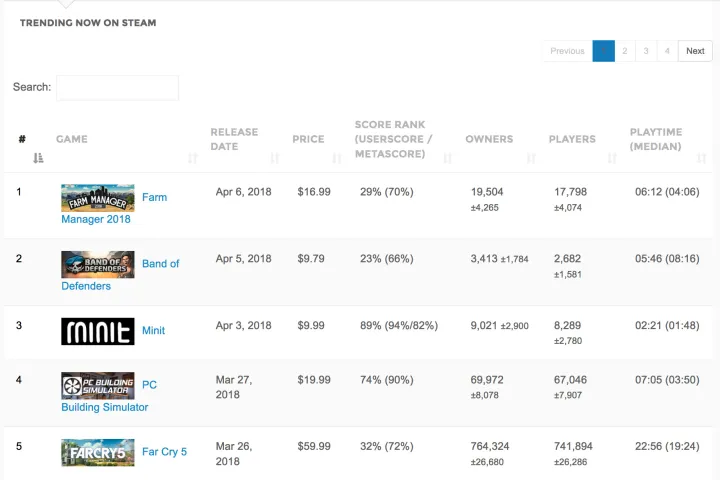
Popular digital game platform Steam updated its privacy settings for users on April 10, giving them additional ways to guard their gaming habits from unwanted users. This includes an option to hide your “game details” — including the list of games you have purchased — from the public, and while this is a good step for those looking to have a more private life online, it has effectively killed the Steam Spy service.
In addition to hiding whether or not you’ve purchased a particular game, the settings now allow you to hide your achievements as well as your playtime from other players — there’s also a new “invisible” option for your online status, which allows you to view your friends list and communicate while still appearing offline to everyone else.
Without game purchase data public by default, however, the sales-tracking service Steam Spy will no longer be effective.
Currently, Steam Spy pulls sales information from Steam and gives its users a rundown of how a game has been performing. In addition to showing its price and whether or not it’s on sale, a game’s Steam Spy page will show its total owners, player-count, peak concurrent players, play-time, and even YouTube statistics. Though the numbers have some wiggle room, it was a handy way to quickly gauge how a game was performing on PC before official numbers were released by publishers.
“Steam Spy relied on this information being visible by default and won’t be able to operate anymore,” the service said in a Twitter post.
The Steam Spy account added that, by default, Steam now makes users’ game libraries hidden. Were this not the case, Steam Spy likely would have continued to operate, though perhaps its numbers would have been more of an estimate.
If you want to get a snapshot of the best-selling current games on Steam, you can still use Valve’s own charts on the Steam store. These show the top-selling games available on the platform at the moment, but don’t provide specific figures. As of right now, games on the list include Far Cry 5 and Rocket League, as well as the Year 2 content pass for Ghost Recon Wildlands.


